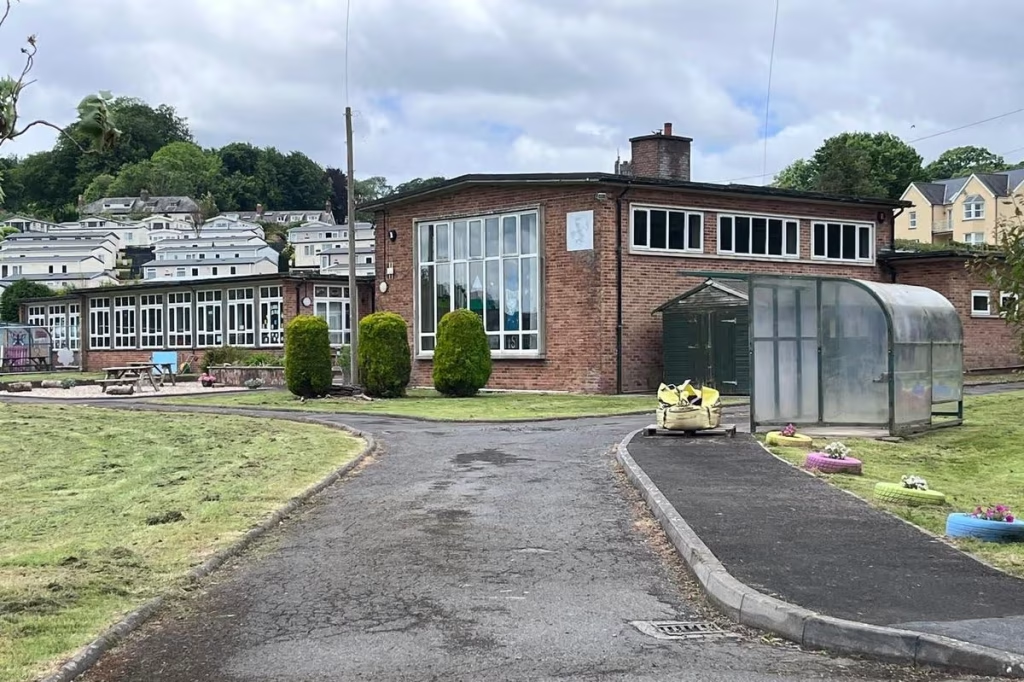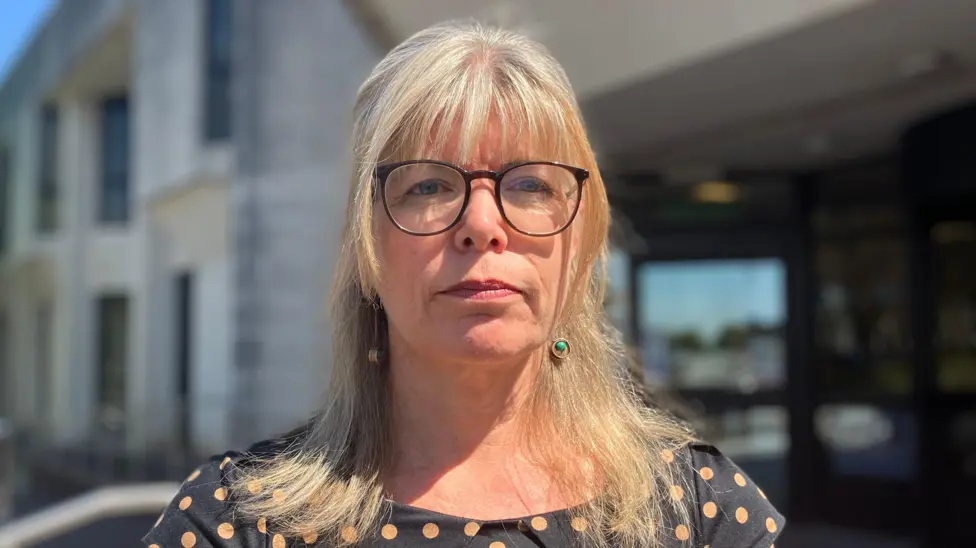Education
Moving for better health and learning

 CHILDREN NEED to move more in order to improve both their health and learning according to Dr Nalda Wainwright, Director of the Wales Institute of Physical Literacy at the University of Wales Trinity Saint David (UWTSD).
CHILDREN NEED to move more in order to improve both their health and learning according to Dr Nalda Wainwright, Director of the Wales Institute of Physical Literacy at the University of Wales Trinity Saint David (UWTSD).
“Children are spending more and more time sitting still watching TV, playing on i-pads, computers and phones,” says Dr Wainwright. “This is worrying because we know from research that if children don’t learn to move well at an early age, they aren’t likely to become active as they grow up. This means they have a greater risk of being overweight or obese, developing type 2 diabetes, high blood pressure, osteoporosis and many other health conditions that are linked to lack of physical activity.”
“The lack of physical activity in young children is particularly worrying as we know that for very young children this activity helps develop physical skills. Since the 1980s research has told us that if young children don’t develop these physical skills this is a barrier that prevents them being able to take part in sport as they grow older.
“It is really important that young children have a foundation of good movement – and this comes through a lot of physical play with the help of teachers and parents. The good news is that by developing their physical skills, children are also developing their brain and improving their learning.”
At UWTSD, there is a strong focus on physical activity and health where Dr Wainwright and a team of staff are supporting the development of Physical Literacy. This is a concept that is growing in recognition throughout the world and is about ensuring that people are able to choose physical activity throughout life.
It is much more than learning skills and playing sport. It’s about being confident; motivated; and about understanding why activity is important and how to be active – whether that’s playing sport in a club, walking in the hills, doing yoga, cycling, swimming or taking a dance class.
Education and high quality physical education in particular has an important role to play in fostering physical literacy so that young people are motivated and able to access a range of activities. Physical literacy is also supported by coaches, instructors, volunteers and parents – in fact anyone that encourages and helps people to be active.
So what can you do to help your children get this foundation of movement?
“You could encourage them to play outside – go out with them to play catching and throwing games,” says Nalda Wainwright. “Make some simple target games with chalk on the ground, or a hoop and bean bags. Help them to balance and move in different ways, over, under and through furniture; walk along a line or jump over objects.
“Can your children run, gallop and skip? Can they dodge in chasing games? If the weather is bad, why not roll up some socks and play catching games or target games inside?”
“You need to ensure that your child is active for several hours every day. You could walk and let them hold your hand instead of sitting them in a buggy. Take them to a park on the way home from school every day so they can chase, run and climb before they start using computers or sit in front of the TV.
“If you can make small changes every day, you will see your children becoming better movers and they will want to move more. In the long term, you will help them become healthier and to learn better in school.”
Dr Nalda Wainwright carried out a study looking at the impact of the Foundation Phase on pupils’ physical literacy and the findings have been significant. Her research showed significant links between the pupils’ physical competence and their intellectual development.
“It is very exciting to see the impact of the Foundation Phase on children’s Physical Literacy and also on their wider learning. Research has shown for some time that there are very strong links between early physical development and cognitive development.
“We are very lucky here in Wales to have The Foundation Phase as, when it is delivered well it is an amazing curriculum that uses a playful approach to learning and gives children opportunities to learn outside every day.
“This approach gives children many opportunities to be active, but our research showed that some of the skills were not being developed and teachers needed more training.
“We are now carrying out more research and are currently running the largest project in early childhood motor development in the world. This is showing us that when we train teachers and parents to develop these skills with the pupils there is a significant impact on the children’s competence.
“This is very important as we now know that teachers and adults working with pre-school children can make a real difference to their chances of being active. We need to make sure that this training is available in all areas of Wales to avoid a health disaster in the future”
Community
Letterston nursery equipment could be stored in cemetery

A CALL for a storage container for a “well-established and valued” Pembrokeshire children’s nursery in a nearby cemetery has been submitted to county planners.
In an application to Pembrokeshire County Council, Diane Evans of Meithrinfa Do Re Mi Nursery seeks permission for the installation of a storage container, partially in retrospect, at Horeb Cemetery, Station Road, Letterston.
A supporting statement says: “The container is required to provide essential ancillary storage to support the lawful and established nursery use within the [nearby] chapel building.
“The site forms part of an active cemetery, owned and managed by a group of trustees. The applicant is one of the trustees and has obtained formal permission from the trustees for the container to be sited on this land. The area selected previously comprised a large, longstanding mound of garden waste which has now been removed. The land has been levelled and prepared with a hard-standing base.
“The container will be used solely for storage of nursery equipment and materials, including outdoor learning resources, maintenance equipment, and items required to manage both the nursery grounds and the cemetery land. No additional operational activity will take place within or around the container.”
It adds: “The day nursery provides childcare for approximately 83 children from the local community and employs 21 staff, all of whom live locally. The nursery is a well-established and valued community facility, supporting local families and contributing positively to the local economy. Adequate storage is essential to ensure the safe, efficient and compliant operation of the nursery. The chapel building itself has limited internal storage, making external ancillary storage necessary.”
It says the nursery “operates with a strong community focus and promotes sustainability and environmental awareness,” with plans to soften its appearance through the planting of trees, shrubs and flowers.
It added: “Children will take part in a ‘sow, grow and give’ project, growing cut flowers from seed. These flowers will be made available to the community, particularly visitors to the cemetery, who will be invited to cut flowers to place on the graves of loved ones. This initiative enhances biodiversity, strengthens community links, and adds social value to the cemetery space.”
The application will be considered by county planners at a later date.
Education
Parents urge council not to close Ysgol Llansteffan

Campaigners call for delay amid Welsh language investigation and rising pupil numbers
PARENTS and campaigners have urged Carmarthenshire County Council’s Cabinet not to recommend the closure of Ysgol Llansteffan when members meet on Monday (Feb 23).
The appeal comes ahead of a proposed decision that could see the village’s Welsh-medium primary school close in August this year.
The Ysgol Llansteffan Parents and Teachers Association (PTA), supported by Cymdeithas yr Iaith, has written to councillors calling for the process to be halted, arguing that key evidence remains incomplete and that the case for closure is flawed.

Among their concerns is an ongoing investigation by the Welsh Language Commissioner into the language impact assessment used to support the closure proposal. Campaigners say it would be inappropriate for the council to make a final decision before the investigation is concluded.
They also claim no council decision-makers have visited the school to verify the information used in the proposal, despite significant changes in circumstances, including a rise in pupil numbers to 17 as of January 2026.
The PTA argues that this increase undermines earlier projections and raises questions about the reliability of longer-term forecasts used to justify closure.
Financial concerns have also been raised. While council documents suggest annual savings of around £112,000, campaigners say transport costs of approximately £50,000 per year and inflationary pressures have not been clearly accounted for, potentially overstating the net benefit.
Parents say closure would remove parental choice and risk damaging Welsh-medium education in the area by forcing some children to travel further or potentially move into English-medium provision.
Cymdeithas yr Iaith has backed the PTA’s call, warning that the council’s objection report failed to properly address concerns that insufficient school capacity elsewhere could push pupils out of Welsh-medium education altogether.
Campaigners have also criticised what they describe as factual inconsistencies in the council’s reports, including outdated enrolment figures and conflicting capacity estimates for neighbouring schools.
The PTA has asked the council to defer any decision until updated data is available, the Commissioner’s findings are published, and alternative options for sustaining the school have been fully explored.
In their letter, parents stressed they remain willing to work constructively with the council to develop a long-term solution that would allow the school to remain open as a sustainable Welsh-medium provision for the community.
Carmarthenshire County Council has previously said the proposal is intended to address falling pupil numbers, high surplus places and financial pressures at the school. Cabinet members were told earlier in the process that neighbouring Ysgol Llangain would have sufficient capacity to accommodate pupils if the closure proceeds, and that transferring learners would provide access to improved facilities and help ensure long-term sustainability of education provision in the area.
The final decision is expected to be taken by full council in March following the Cabinet’s recommendation.
Crime
Teacher stabbed by pupil criticises school weapon scanner plans

Victim says teachers should not be turned into “security guards” after Ammanford attack
A TEACHER who was stabbed multiple times by a pupil at a Carmarthenshire school has criticised proposals to introduce weapon scanners in classrooms, warning they risk shifting responsibility onto already overstretched staff.
Liz Hopkin was attacked by a teenage student at Ysgol Dyffryn Aman, Ammanford, in April 2024, in an incident that shocked communities across Wales.
Speaking to BBC Radio Wales, Ms Hopkin said she does not believe scanners are “the answer” to preventing violence in schools and warned they could undermine relationships between teachers and pupils.
She said the focus should instead be on preventing young people from bringing weapons to school in the first place.
“This isn’t about preventing people bringing knives into school in the first place. This is just about detection,” she said.
“If by the time you’ve got the knife in school, you’ve missed so many opportunities prior to that to stopping that knife coming in in the first place.”
Ms Hopkin also warned that introducing scanning responsibilities could place teachers in unsafe and inappropriate situations.
“To stop putting the responsibility onto schools — we already have enough responsibility with less and less and less resources,” she said.
“You’re adding the role of security guard to teachers who are trying to build relationships with young people.”
Despite suffering serious injuries in the attack, she said she still did not believe scanners were the right approach.
“In my own head, as somebody who’s been right at that point where I’ve been stabbed — I was stabbed five times and feared that I would die — I still don’t think it’s a good idea,” she said.
The Welsh Government told the BBC that its work around weapons in schools forms part of a wider strategy to improve behaviour, with a strong emphasis on prevention rather than enforcement.
Officials said any decision to use scanners would be made by individual local authorities, and there is no expectation that teachers or school staff should carry out security duties.
Some councils have already trialled handheld scanners. Cardiff Council has supplied them to schools, but they are only used when there is a clear concern a pupil may be carrying a weapon.
The stabbing at Ysgol Dyffryn Aman led to renewed debate about school safety across Wales, including behaviour management, pupil support services, and funding pressures facing education.
Ms Hopkin added: “I would never ever suggest that anybody put themselves at risk to check. That’s not our role.”
(Image: BBC)
-

 Health4 days ago
Health4 days agoWithybush loses emergency surgery in shock health board decision
-

 Health4 days ago
Health4 days agoHealth board confirms major hospital changes across west Wales
-

 Health3 days ago
Health3 days agoConcerns grow over Bronglais stroke plans as politicians demand clarity
-

 Health4 days ago
Health4 days agoHealth board: Changes will bring “resilience and sustainability” to West Wales services
-

 Local Government2 days ago
Local Government2 days agoCandidate who withdrew from Hakin race will still appear on ballot paper
-

 Business6 days ago
Business6 days agoMS’s host business advice surgery following demand from Business Rates Online Forum
-

 Crime7 days ago
Crime7 days agoMan charged with GBH with intent following incident involving ‘Pembrokeshire Patriot’
-

 Crime6 days ago
Crime6 days agoTeen given community order after assaulting police officer at hospital





























